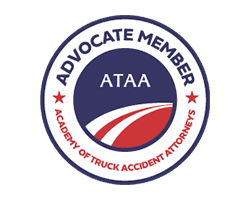
Corpus Christi Helmets and Safety Gear Defect Attorneys
Texas has no statewide law requiring bicyclists to wear helmets, and only motorcyclists under 21 years of age are required to wear motorcycle helmets. Certain communities have, however, have enacted their own independent bicycle and motorcycle helmet requirements. Wearing a helmet is a highly advisable safety practice for all age groups.
Most people understand that helmets and other safety gear are designed to reduce the chances of severe injuries in accidents. What happens when a person who has been involved in a crash or wears headgear on the job still suffers a catastrophic injury because of helmet failure? Dangerous or defective helmets or other safety gear could make manufacturers or sellers possibly liable for money damages.
If you suffered injuries or your loved one was harmed or killed because of a defective helmet or some other type of safety gear in the Corpus Christi area, retaining legal counsel for assistance in navigating a complicated legal process implicated in product liability is essential. Brunkenhoefer, P.C. Injury Attorneys can fight to make sure that you can recover all of the compensation to which you are entitled.
Established in 1992, our firm will explore all of your legal options with you when you call (361) 310-5299 or contact us online to schedule a free consultation.
Do I Need a Lawyer for My Helmet or Safety Gear Case?
Companies are legally expected to take reasonable care when making or distributing products. While helmet or safety gear fails, you should not expect the manufacturer to admit fault. The chances are that a manufacturer or other entity in the stream of commerce will deny any injury claim. Instead, the potentially responsible party or parties may insist that you were at fault for not properly wearing the helmet or seize upon some other excuse to avoid paying damages.
It can be difficult for the average person to determine whether or not they have a viable product liability case, especially when defective headgear is involved.
An experienced products liability attorney will immediately conduct an independent investigation to examine the flaws in your helmet fully. The lawyer will review all of the evidence and consult with experts to prove that a flawed helmet exacerbated your injuries.
Keep in mind that you have a limited amount of time to file a product liability lawsuit, generally a maximum of two years. An insurance company for the manufacturer is likely to engage in many tactics to delay the handling of your claim and possibly leave you with nothing. Therefore, it is crucial to retain an aggressive attorney who can hold their feet to the fire as well as determining the amount of compensation to which you are entitled.
A Corpus Christi products liability attorney can step in and immediately begin negotiating for a fair and full settlement to your case. When the insurance company fails to make an acceptable settlement offer, your lawyer can file a lawsuit to let a judge or jury decide.

Helmets and Safety Gear Cases We Handle
Brunkenhoefer, P.C. Injury Attorneys has decades of experience handling various personal injury cases, including product liability. As such, we are familiar with many issues relating to defective helmets.
Some of the other kinds of safety gear cases we handle include:
- Mirrors
- Gloves
- Mouthguards
- Body armor
- Toe clips
- Tires
- Lights
- Handlebars
- Cameras
- Belts
- Bike grips
- Armbands
- Horns
- Navigation systems
Most product liability claims will be based on one of three kinds of defects: manufacturing defects, design defects, or failure to warn. Some cases could involve more than one of these kinds of negligence.
To prove your claim in court, an injured party must prove that a product was somehow defective and the manufacturer is responsible for that defect. When the defect was the cause of or contributed to your injuries, you may be entitled to various economic damages that cover the actual costs like medical bills and lost wages as well as possible noneconomic damages like pain and suffering or emotional distress.
Helmets and Safety Gear Injury Statistics
The Centers for Disease Control and Prevention (CDC) stated that helmets saved approximately 1,859 lives in 2016, and 802 additional lives could have been saved if all motorcyclists had worn helmets that year. According to the CDC, helmets reduce the risk of death by 37 percent, the risk of head injury by 69 percent, and the United States could save over $1 billion every year if all motorcyclists wore helmets.
The National Safety Council reported that 1,908 motorcyclists killed in accidents in 2017 were not wearing helmets. Helmets are estimated to be 37 percent effective in preventing fatalities.
According to the Bicycle Helmet Safety Institute, U.S. Department of Transportation Fatality Analysis Reporting System data showed that there were 835 total bicyclist deaths in 2016. Of that total, 424 bicyclists had no helmet, 137 were helmeted, and 274 were unknown.
A study by the American Journal of Surgery found that helmeted bicyclists had 51 percent reduced odds of severe traumatic brain injury, 44 percent reduced odds of mortality, and 31 percent reduced odds of facial fractures. Of 6,267 patients included in the study, 25.1 percent were helmeted, and 52.4 percent had severe TBI.
The Snell Memorial Foundation reported that 95 percent of bicyclists killed in 2006 were not wearing helmets. Injuries to unhelmeted cyclists result in an estimated $2.3 billion in indirect costs annually.
Frequently Asked Questions About Helmets and Safety Gear
We understand that hiring a law firm is a big decision, which is why we’ve compiled some frequently asked questions about helmet-related claims. Review them below and call us at (361) 310-5299 today to schedule an appointment to discuss your case in more detail.
-
Who is responsible if I’m hurt due to a defective helmet?
If you’re hurt in an accident through no fault of your own, you could be owed significant compensation from the responsible party or parties. When it comes to defective helmets, the manufacturer could be liable for the harm you’ve suffered if their product was defectively designed or manufactured.
Other parties could potentially share liability for the accident, depending on the circumstances of your accident. For example, if you were hit by a negligent driver while riding a bicycle and suffered traumatic brain injuries as a result of the crash and a defective helmet, the driver who hit you could be liable, as well as the defective helmet manufacturer.
-
What type of compensation could I be owed?The types and amount of compensation you could recover will depend on the severity of your injuries. In general, people who are hurt by defective products could be owed compensation for their medical expenses, lost wages and other costs, pain and suffering, and other damages.
-
How do I know if a helmet is a proper fit?
Helmet sizes can vary among manufacturers. You may need to try on a few sizes to make sure a helmet is a good fit. Hold the helmet by the chin straps, put your thumbs inside the chin straps to balance the helmet with your fingertips, and place the helmet over your head using the chinstraps. The helmet should fit snugly on your head and not be tilted back like a ballcap. Cheek pads should touch your cheeks but should not be pressing.
Make sure there are no gaps between your temple and the brow pads. When the helmet is on with the straps are fastened, you should feel your skin move when the helmet is moved. When the chin strap is fastened, you should not be able to roll the helmet off your head; the helmet is too big if you can.
-
Is a cheaper helmet going to be far less safe than an expensive helmet?
Not necessarily. All bicycle helmets manufactured after 1999 are required to satisfy the U.S. Consumer Product Safety Commission (CPSC) bicycle helmet standards. The result is usually a minimal difference in safety provisions. In January 2010, Consumer Reports stated that a study showed cheaper bicycle helmets offered the same protection as expensive ones on standard impact tests. However, you should thoroughly research current products and exercise due diligence before making any purchases.
-
When should I replace a bicycle or motorcycle helmet?It is generally recommended to replace a frequently worn helmet every three to five years. Many helmets are subject to wear and tear in which they do not function as effectively after years of repeated use. You may have to replace the helmet sooner than that if you are involved in any accident or the helmet is involved in any hard impact situation. Keep in mind that foam-padding is designed for one-time use; any crushing of the foam, even once, means that the helmet loses some of its protectiveness. Proper care can prolong the life of headgear.

Why choose our firm our unique approach sets us apart from other firms

-
Trial-Tested & ReadyWe prepare every case as if it's going to trial.
-
Accessibility RedefinedWe believe in open communication and responsiveness. You can contact your attorney 24/7.
-
Client-Centered ApproachYour needs and well-being are at the forefront of everything we do.
-
Embracing TechnologyWe leverage technology to enhance your experience.
-
Champions of Diversity in South TexasWe are committed to advocating for all individuals, regardless of their background.

Contact a Helmets and Safety Gear Attorney in Corpus Christi
Did you sustain severe injuries or was your loved one harmed or killed as a result of a defective helmet or another kind of failed safety gear in Corpus Christi or the Nueces County area? Don’t wait until it is too late to get the compensation you deserve. Time is limited to file a product injury claim, so be sure to speak with an experienced product defect attorney right away.
Call Brunkenhoefer, P.C. Injury Attorneys at (361) 310-5299 or contact us online to schedule a free consultation. There are no upfront legal fees. We will not charge you a single cent unless we deliver results for you in the form of financial compensation from the responsible parties. With three decades of legal experience to put to work, we possess the resources, legal knowledge, and qualifications to obtain justice for you and your family. We give each client’s case the personal attention that it deserves.
















